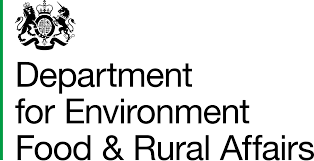PRESS RELEASE : Australia’s naval nuclear propulsion: AUKUS update to IAEA Board of Governors [June 2024]
The press release issued by the Foreign Office on 7 June 2024.
Statement by Australia, the UK and the USA (AUKUS) to the International Atomic Energy Agency (IAEA) Board of Governors on naval nuclear propulsion.
Thank you, Chair.
I have the honour of speaking on behalf of Australia, the United Kingdom, and the United States to provide an update to the Board of Governors on Australia’s naval nuclear propulsion program.
Chair,
Australia and the IAEA are continuing to hold bilateral technical consultations on a robust safeguards and verification approach for Australia’s acquisition of conventionally armed, nuclear-powered submarines. These consultations include negotiations relating to the development of an arrangement under Article 14 of Australia’s Comprehensive Safeguards Arrangement. The most recent round of formal consultations between Australia and the Agency took place in May. These discussions encompassed legal and technical aspects of an Article 14 arrangement for Australia. Discussions are continuing.
We thank the Director General and the Secretariat for the Agency’s productive engagement with Australia in these ongoing consultations, in exercising its technical mandate to engage with Member States on the implementation of their safeguards agreements. Bilateral, in-confidence engagement between the Secretariat and Member States is fundamental to the non-proliferation regime.
We are confident that Member States will see through the attempts we observed earlier at the current Board meeting, and indeed ever since AUKUS was announced, to sow doubts about the Secretariat’s engagement with Australia on naval nuclear propulsion. We thank the many Board members who earlier in this meeting noted with appreciation the Secretariat’s engagement with the relevant States on naval nuclear propulsion, as accurately reflected in the 2023 Safeguards Implementation Report.
I refer Member States to my recent, publicly available remarks delivered at the workshop organised and hosted by the Permanent Mission of China, outlining the well-established legal and policy framework through which Australia is engaging the IAEA.
As I made clear at the workshop, it struck me as highly unusual for one country to organise an event targeted at another country’s sovereign endeavour and bilateral engagement. I decided to speak at the event in the interest of transparency, but fully aware the forum was not one designed to facilitate impartial discussion.
The IAEA’s technical role is an integral part of the non-proliferation system. It is crucial that all Member States respect the independence, mandate and technical authority of the IAEA. This is why Australia has expressed serious concern about references to ‘an intergovernmental process’. Such a process could subject the IAEA’s technical work to the political deliberations of Member States. All Member States share an interest in protecting the IAEA’s technical mandate – as we all rely on its ability to carry out its mandate independently and impartially in these challenging times.
Chair,
The AUKUS partners recognise that the acquisition of conventionally armed, nuclear-powered submarines by Australia carries with it a responsibility to ensure the highest standard of non-proliferation is upheld. Under Australia’s Article 14 arrangement, the IAEA will maintain oversight of nuclear material. We reiterate our commitment that Australia will not enrich uranium or reprocess spent fuel as part of this program and to ensuring that the non-proliferation approach for Australia’s naval nuclear propulsion program will enable the IAEA to fulfil its technical objectives for Australia at all stages of the submarines’ lifecycle. The Agency will continue to verify that there has been no diversion of nuclear material; no misuse of nuclear facilities; and no undeclared nuclear material or activities in Australia.
The Director General has confirmed that, once Australia’s Article 14 arrangement has been developed, he will transmit it to the Board for appropriate action. As we have stated before, we fully support this approach.
Chair,
We remain committed to keeping the Board updated on relevant developments concerning our three countries’ cooperation on naval nuclear propulsion. Since we met in March, Australia has announced the selection of industry partners for the build and sustainment of Australia’s future conventionally armed, nuclear-powered submarines. In April, our defence ministers released a joint statement which, in addition to providing an update on a number of initiatives, outlined readiness to begin engaging additional countries on specific advanced capability projects under AUKUS Pillar Two. AUKUS Pillar Two does not involve nuclear cooperation or capability. It is separate from the initiative under AUKUS Pillar One to support Australia’s acquisition of conventionally armed, nuclear-powered submarines, which will remain exclusively trilateral between Australia, the United Kingdom, and the United States.
Together, our defence ministers demonstrated our united approach, and reiterated our commitment to setting the highest non-proliferation standard. They also referred to AUKUS partners’ initiatives to build Australia’s capability to safely and securely maintain its future submarines. These include initiatives to support workforce skills and development, including a maintenance activity to be conducted on a US nuclear-powered submarine in Australia, which is scheduled to occur in the second half of 2024.
As the Director General has said in recent statements, Australia and the Agency are engaging to ensure that relevant technical measures are in place ahead of any such activity, under Australia’s safeguards agreements with the Agency. Such engagement on safeguards implementation is entirely consistent with the Agency’s mandate and with longstanding practice.
Chair,
The Director General has confirmed he will continue to provide reports on naval nuclear propulsion programs to the Board as the need arises. We fully support his prerogative to decide the appropriate time for this matter to be placed on the Board’s agenda.
The AUKUS partners will continue to update the Board on developments relating to Australia’s naval nuclear propulsion program, and to engage the international community, including at the upcoming NPT Prep Com. We welcome the opportunity to address questions from interested delegations regarding our non-proliferation approach, at future Board meetings and in other fora, as appropriate.
Thank you, Chair.


